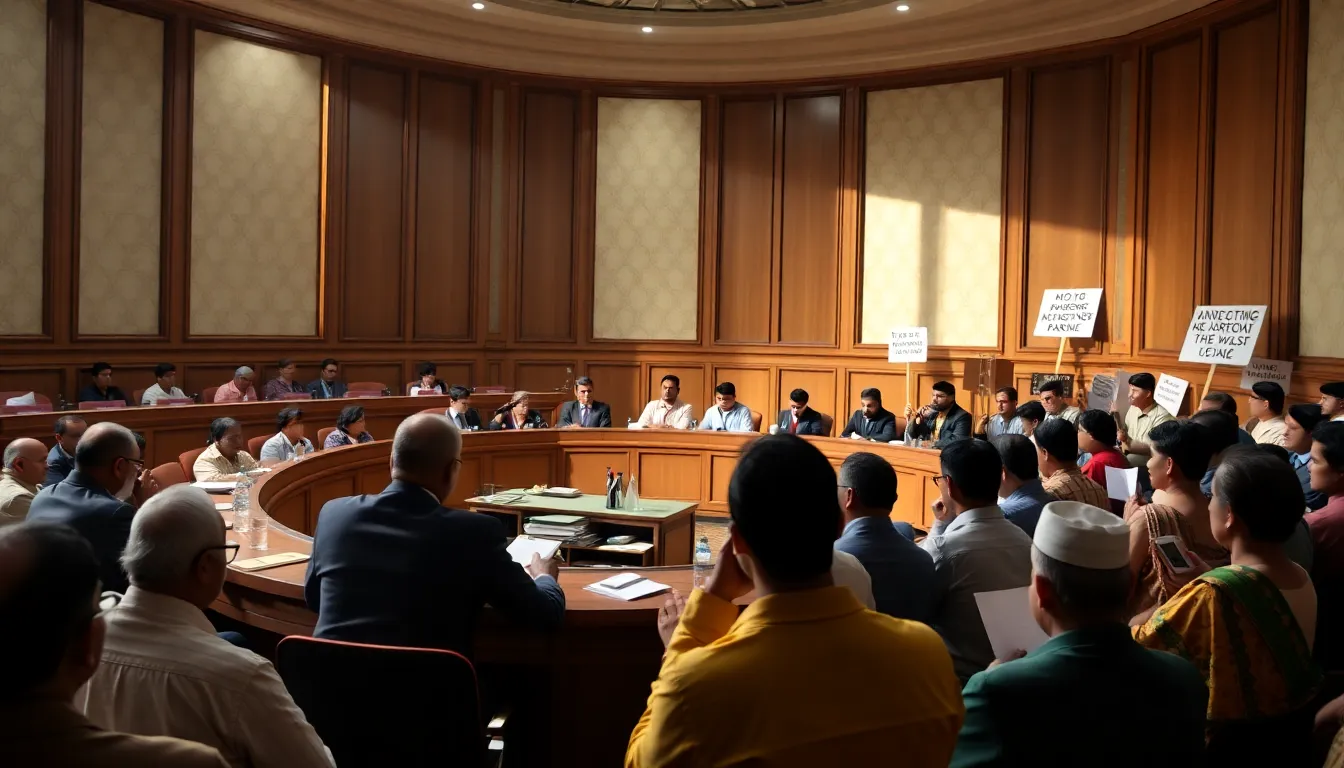The Supreme Court of India is currently hearing a significant case regarding the Waqf (Amendment) Act, 2025. This hearing, which started on Wednesday, has captured the attention of many. The government, represented by Solicitor General Tushar Mehta, has presented its arguments strongly. The government claims that the petitioners do not represent the entire Muslim community. Mehta stated that over 9.7 million suggestions were received from various stakeholders, and meetings were held to discuss proposed amendments thoroughly.
During the hearing, the Solicitor General emphasized that the amendments to the Waqf Act were the result of extensive discussions. He mentioned that opinions were taken from 25 Waqf Boards, with some members presenting their views in person. The government has consulted with various state governments as well. Mehta explained that detailed discussions were held on each section of the amendments, where some suggestions were accepted while others were rejected.
Justice B.R. Gavai raised a crucial question during the hearing. He asked whether the government could determine its own claims in this matter. Mehta acknowledged that the government cannot definitively confirm its claims, as the initial bill stated that a collector would make decisions.
There are concerns that the collector will act as a judge in their own case. The court suggested appointing someone other than the collector as the designated officer. Mehta clarified that revenue officials only make decisions for record purposes and do not finalise titles.
The Solicitor General explained that the government acts as a trustee for all citizens regarding land use. He pointed out that Waqf is based on usage, meaning that even if land belongs to someone else, if a user has been using it for a long time, the situation needs to be clarified. He questioned whether the government could not investigate if a property built on government land truly belongs to that individual, as per the provisions under section 3(zh).
The Waqf Act amendments have sparked controversy. Critics argue that the changes infringe on the fundamental rights of Muslims. They believe that the new law could lead to improper management of Waqf properties, as it centralises control and potentially allows the government to make unilateral decisions regarding these properties. They also express concern over the inclusion of non-Muslims in Waqf Boards, fearing that this could dilute the management of religious properties.
Many political parties have filed petitions against the Waqf amendments in the Supreme Court. These parties include Congress, Trinamool Congress, and several others. They argue that the amendments undermine the rights of Muslims and pose a risk of government overreach into religious matters. Notably, the Supreme Court has indicated it might impose a stay on the contentious aspects of the law.
As the hearing progresses, the Supreme Court has given the government a week to respond to the issues raised. Until the government provides its response, the current situation regarding Waqf properties will remain unchanged. The outcome of this case could significantly impact the management of Waqf properties across India, a matter that concerns many in the Muslim community.
The government insists that these amendments are necessary for transparency and accountability in managing Waqf properties. Officials believe that these changes will enhance the management of Waqf properties and reduce corruption. Meanwhile, some states have supported the amendments, arguing they align with constitutional provisions and do not discriminate against any community.
The Supreme Court is tasked with addressing these critical issues, as the implications of the Waqf Act amendments resonate across communities in India. The case highlights the balance of religious rights, government authority, and community interests in a diverse nation like India.


Leave a Reply